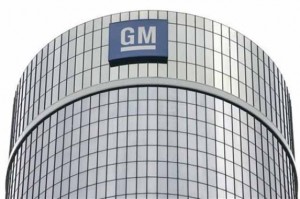General Motors is denying a report that it pressed the White House to sell off the remaining shares of GM stock held by the U.S. Treasury.
Sources inside the company insist the two reluctant partners have agreed that they will wait until an acceptable and appropriate time to sell the 500.1 million shares still held as a result of the government bailout of GM that followed the maker’s emergence from bankruptcy in 2009.
A report in the Wall Street Journal today indicated GM had pressed Washington to sell off that 26.5% stake as soon as possible, but spokesman Greg Martin insists the maker is taking the position that “it’s Treasury’s decision,” much like any other investor. And for now, a top Treasury official said there is no rush to “dump” GM stock.
Considering the magnitude of the loss the government would encounter at the current stock price of around $24, however, several sources said they cannot imagine a sell-off occurring any time before this November’s presidential election.
The bailout of GM and cross-town rival Chrysler has become a hot-button issue in the current election, GOP contender Mitt Romney staunchly opposed, even though the rescue effort began under former Republican President George W. Bush. The current White House occupant, Pres. Barack Obama, continues to defend the bailout as the only possible way to have saved 1 million jobs and forestall an even worse economic meltdown.
There’s little doubt GM would like to cut its ties with the government. While the maker’s CEO Dan Akerson has said the White House does not interfere with day-to-day operations he has nonetheless chafed at limits placed on his salary and those of other senior executives. The government enacted measures following the passage of the TARP banking bailout in 2008 that cap executive salaries at companies still owing money to the Treasury.
Akerson and other senior executives have said that makes it more difficult to recruit new talent to senior positions because highly qualified managers could do better elsewhere.
Just last month, GM’s vice president for global public policy, Bob Ferguson, seemed to suggest the maker would push to sever its Washington ties when he declared an “orderly but quick exit…would be a better day for everybody.”
GOP candidate Romney has himself indicated he would sell off the government’s GM holdings quickly after being inaugurated next January. But not everyone sees the wisdom in telegraphing such a position, especially considering the size of the government’s holdings. Such a sell-off could turn into a fire sale, sharply driving down the price of GM stock.
As of noon Tuesday, GM shares were up 35 cents for the day, at $24.15. That’s a significant turnaround from the maker’s 52-week low of just $18.72, but still off from the 52-week high of $27.68 – and from the initial $33 at the time of GM’s November 2010 IPO.
At the current price, the government could expect to lose nearly $15 billion on the GM portion of the $84 billion automotive industry bailout. It would need to see GM stock surge to around $53 to break even.
Following the 2010 IPO many analysts believed that was quite possible. The maker’s fortunes have ridden a roller-coaster since then and GM shares have been suppressed by the ongoing losses it is suffering in Europe. It is expected to lose between $1.5 billion and $2.0 billion there for all of 2012, which would mark the 14th consecutive year in the red for GM Europe.
Nonetheless, many analysts have been turning more upbeat, in part due to GM’s solid performance in China and its continuing recovery in North America. Toronto-based ratings agency DBRS last week gave GM its first investment-grade rating in over half a decade and other, larger agencies have hinted they may follow.
Last week’s announcement helped propel GM stock upward this week. But shares have gained a total of 26% since bottoming out in July – about the time candidate Romney called for a sell-off that might have led to significantly greater losses than they would even today.
For now, there is no rush to “dump” GM, insisted Timothy Massad, assistant treasury secretary for financial stability, last week.
“We’ve been very disciplined and always looking at how can we exit quickly, because the government is not a hedge fund, and it shouldn’t be a long-term investor,” explained Massad. “But we also have to maximize taxpayer returns.”

